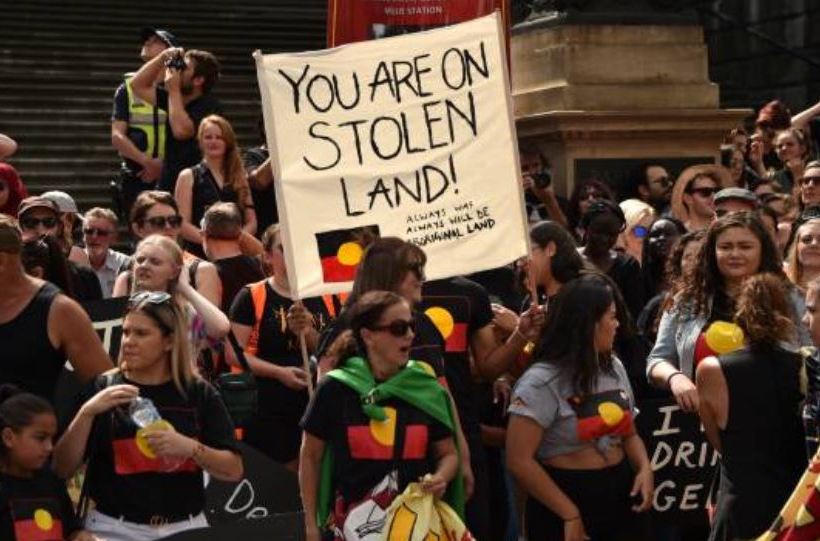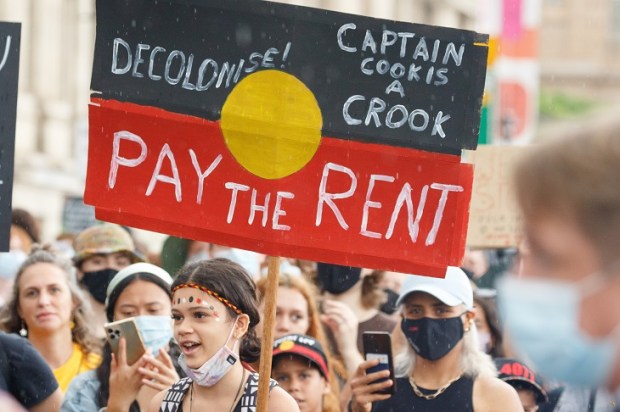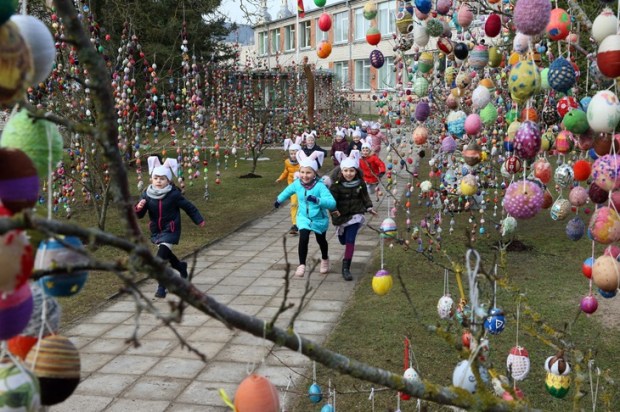Most Australians are pretty generous. They want to do the right thing by this country’s first inhabitants, especially when it comes to alleviating the plethora of social problems that beset some Aboriginal communities and their families; substance abuse, literacy, health, domestic violence and the sexual abuse of children. (If you are interested in reading why government programs have been largely unsuccessful in addressing these issues, then see the excellent 2016 report by Sara Henderson for The Centre for Independent Studies).
But when activists like Wayne Wharton, leader of the Brisbane Aboriginal-Sovereign Embassy, start threatening acts of “violence” and even “terrorism”, at events such as the upcoming Commonwealth Games, then he’s definitely crossed a line. Warton was recently quoted as saying:
Malcolm Turnbull’s statements in the past three weeks are close to inciting (the use of) guns and (Aboriginal activists) taking up terrorism.
But since when has the current Prime Minister said anything inflammatory, particularly in regards to the desperate plight of disadvantaged Australians – whether they are black or white? Wharton went on to say:
If a policeman or a white racist comes for me, I am taking justice into my own hands… we won’t go near innocent people but there’s no justice in the white system and we need to stand up.
Wharton really needs to go and watch the new movie Black Panther. Because it sure didn’t work out that well for the character Killmonger when he adopted that kind of approach. Unfortunately, it seems that some Aborigines have become “radicalised” by the cultural imperialism embodied by the Black Lives Matters Movement from the United States. As The Australian has reported:
Mr Wharton’s Brisbane Aboriginal-Sovereign Advisory Council is co-hosting the protest camp with the Warriors of the Aboriginal Resistance (WAR), who stated last month they wanted to “burn Australia to the f..king ground”.
Some will object that Wharton is an extremist who doesn’t represent wider, mainstream Aboriginal thought. But isn’t that the same thing that is often said about “lone wolves” in association with Islamic militant attacks?
Noel Pearson, Aboriginal lawyer and academic, earlier this year wrote of the powerful force that Christianity, in particular, had in reconciling people not only to God but also between people of every culture. In honour of the death of Lady Flo Bjelke-Petersen he wrote:
The religious layer of the identity we share with the former premier and his wife and senator binds our people to them, and to their descendants, notwithstanding that politically most Aboriginal Lutherans would be at odds with Joh’s political legacy. The core of our mutual identification with each other is Martin Luther’s revolutionary theology that we are saved by the grace of God and not perforce by anything we do.
I believe that Pearson is definitely on to something here. At its core, Western Civilisation has always had the Christian faith holding it together. However, the further we move away from it the more we become disconnected to one another.
Similarly, Warren Mundine, the former Chair of the Prime Minister’s Indigenous Advisory Council, has since rightly—and publicly—rebuked his fellow Aboriginal leader stating:
I know Wayne Wharton … We both protested the 1982 Commonwealth Games together and we shared a police cell… But times have changed … I’ve left the police cell behind and Wayne needs to as well.
Back on August 29, 2016, Mundine, while speaking on Q&A, made the claim: “$30 billion is spent every year on 500,000 Indigenous people in Australia.” Thirty billion dollars. Per year. Q&A then exercised their due diligence and did a fact check and found:
The Productivity Commission creates two major reports of relevance to Aboriginal and Torres Strait Islander Australians. The first is the Overcoming Indigenous Disadvantage report, which focuses on socioeconomic and well-being outcomes.
The second report, titled the Indigenous Expenditure Report, attempts to identify the level of expenditure that relates to the Indigenous population. A key point in this 2014 report supports Mundine’s claim:
Total direct expenditure on services for Aboriginal and Torres Strait Islander Australians in 2012-13 was estimated to be $30.3 billion, accounting for 6.1 per cent of total direct general government expenditure.
The same report also found that:
Estimated expenditure per person in 2012-13 was $43,449 for Aboriginal and Torres Strait Islander Australians, compared with $20,900 for other Australians (a ratio of 2.08 to 1 — an increase from a ratio of 1.93 to 1 in 2008-09).
So, there you have it. In terms of government expenditure, Aboriginal Australians are not being disadvantaged at all. In fact, far from it. They even receive twice as much financial assistance as non-indigenous citizens.
To be fair, the same ABC fact check did go on to quibble as to “how much of that $30.3 billion is spent on Indigenous-specific programs?” But since we have never had a system of apartheid, surely there is always going to an overlap of government services provided to people of every racial background.
Whatever way you look at it, the point is still the same: Aboriginal people are receiving a lot of financial assistance from the Australian government. Why would you then want to turn around and destroy it?
Most Aussies are pretty generous and easy-going. But if acts of violence, like what Wharton is threatening, start occurring then the tide of public opinion is going to turn. And that is an enormous tragedy, because there are a huge number of indigenous Australians who desperately need to be helped. And threats of violence and terrorism by some Aborigines will do irreparable harm.
Mark Powell is the Associate Pastor of Cornerstone Presbyterian Church, Strathfield.
Got something to add? Join the discussion and comment below.
Got something to add? Join the discussion and comment below.
Get 10 issues for just $10
Subscribe to The Spectator Australia today for the next 10 magazine issues, plus full online access, for just $10.


























Comments
Don't miss out
Join the conversation with other Spectator Australia readers. Subscribe to leave a comment.
SUBSCRIBEAlready a subscriber? Log in